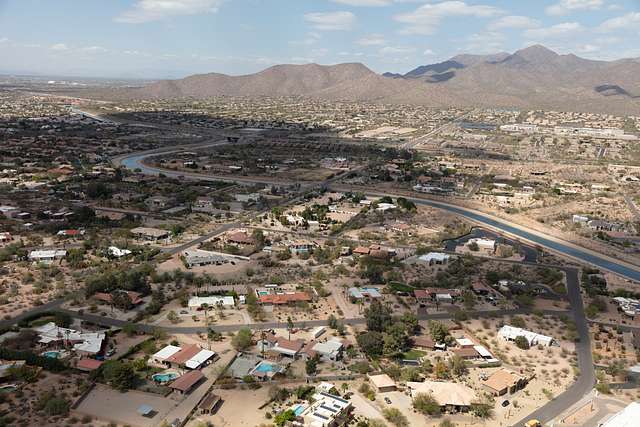Arizona’s ambulance providers navigate complex billing challenges, making ambulance collections in Arizona uniquely demanding with a 25% uninsured rate among emergency transports, significant seasonal population fluctuations, and cross-border transport complications that create distinctive documentation requirements for successful reimbursement.
Payer Mix Reality
Arizona’s diverse population and proximity to the Mexican border create a complex payer mix for EMS providers. Effective ambulance collections in Arizona must account for a typical breakdown of Medicaid 35%, Medicare 30%, Commercial Insurance 22%, and Self-pay 13%. This higher self-pay percentage, combined with seasonal resident patterns and tourist emergencies, significantly impacts collection strategies across the state.
The dominant commercial payers in Arizona include Blue Cross Blue Shield of Arizona, United Healthcare, Aetna, Cigna, and Health Net. Reimbursement rates vary considerably, with commercial payers typically paying $800-$1,400 for BLS transports and $1,200-$2,000 for ALS transports. For ambulance collections in Arizona, the Phoenix metropolitan area sees higher commercial reimbursement rates compared to rural counties, where negotiating power is limited.
Collection challenges in Arizona are amplified by the transient nature of certain populations. Average collection rates stand at 94% for Medicare, 90% for Medicaid (AHCCCS), 52% for commercial insurance, and only 7% for self-pay accounts. Border communities face additional hurdles with international patients and unclear coverage scenarios. Successful ambulance collections in Arizona, therefore, require sophisticated strategies for managing out-of-state insurance plans and seasonal resident coverage transitions.
State Medicaid & Compliance
Arizona Health Care Cost Containment System (AHCCCS), the state’s Medicaid program, reimburses ambulance services through a managed-care model that adds complexity to billing processes. Current fee-for-service rates include $342 for BLS transports and $410 for ALS transports, plus $5.25 per loaded mile. Navigating these rates is central to compliant ambulance collections in Arizona.
Timely-filing limits vary by AHCCCS MCO, ranging from 6 – 12 months from the date of service. The clean-claim requirement mandates submission within 45 days for optimal processing. Prior authorization applies to non-emergency transports, with specific documentation needed for repetitive trips such as dialysis or radiation therapy. Each MCO maintains different authorization processes, compelling providers focused on ambulance collections in Arizona to master multiple systems.
No Surprises Act implementation in Arizona includes state-specific provisions via the Department of Insurance. While ground ambulance services aren’t covered federally, Arizona enforces balance-billing restrictions for emergency services. Providers pursuing ambulance collections in Arizona must issue good-faith estimates for scheduled transports and cannot balance bill AHCCCS members, reshaping healthcare-collections strategies, especially for out-of-network emergency transports.
Collection Laws
Arizona’s medical-debt framework incorporates robust consumer protections beyond federal FDCPA requirements. Title 32, Chapter 9 of the Revised Statutes regulates collection agencies with provisions that directly influence ambulance collections in Arizona.
Collection agencies must be licensed through the Department of Financial Institutions and maintain a $10,000 surety bond. Arizona law prohibits reporting medical debt to credit bureaus for 60 days after the initial bill, providing a grace period for insurance resolution. Wage-garnishment caps and a statute of limitations of three years for oral contracts and six for written contracts further shape compliant ambulance collections in Arizona. Recent legislation also mandates clear itemization of charges and halts collection activities during active insurance appeals.
Local EMS Landscape
Arizona’s EMS landscape spans metropolitan areas, rural communities, and tribal nations, each presenting distinct hurdles for ambulance collections in Arizona. Major hospital systems—including Banner Health, HonorHealth, Dignity Health, and Valleywise Health—often maintain exclusive transport agreements that shape referral and billing patterns.
The 911 structure varies across the state’s 15 counties. Phoenix Fire Department operates the nation’s largest municipal fire-based EMS system, while counties like Cochise and Mohave rely on private services; tribal nations such as the Navajo Nation run independent EMS programs. Providers handling ambulance collections in Arizona must therefore navigate multiple billing authorities and reimbursement methodologies.
Average transport distances reflect Arizona’s geographic diversity: urban Phoenix transports average 12 miles, whereas rural trips often exceed 80 miles. Border communities confront international patient transports and repatriation issues. Certificate of Necessity (CON) regulations and mutual-aid agreements across vast desert regions further complicate ambulance collections in Arizona.
Case Study
In Phoenix, Southwest Ambulance cut its 120-day A/R from $4.2 million to $2.6 million by automating insurance discovery for seasonal residents and tourists. High denial rates for out-of-state Medicare Advantage plans and snowbird patients whose coverage changed mid-season had hampered ambulance collections in Arizona.
Partnering with Midwest Service Bureau, they integrated real-time eligibility verification with CAD dispatch, capturing insurance data during initial patient contact. Arizona-specific billing protocols for RV-park emergencies and resort transports boosted first-pass claim acceptance from 68% to 87%. Collection rates for out-of-state insurance rose 34%, while write-offs fell by $450,000 annually—proof that tailored strategies drive superior ambulance collections in Arizona.
The Arizona Department of Health Services’ 2023 EMS report underscored growing financial pressure on rural services amid rising uncompensated care.
Contact Our Ambulance Collections in Arizona
Ready to optimize your ambulance collections in Arizona? Midwest Service Bureau understands Arizona’s unique challenges. Call 316-263-1051 to discuss your specific needs.
Phone: (316) 263-1051
Address: 625 W. Maple St., Wichita, KS 67213





